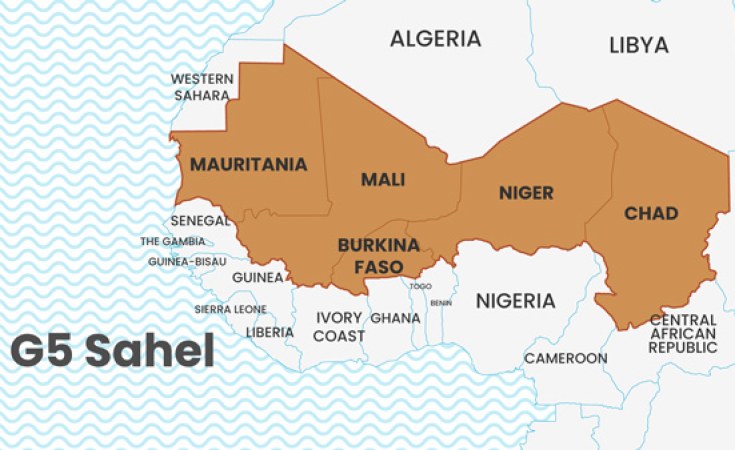Unlike its neighbours, Niger has made dialogue with violent extremist groups an important part of its strategy.
On 10 February, Niger suffered one of its deadliest attacks when gunmen with suspected links to violent extremist groups ambushed a military convoy in Banibangou, a community in the Tillabéri region. Seventeen soldiers died and 13 were injured, ending months of relative calm in the area.
Violence had diminished as a result of two special operations conducted in northern Tillabéri between July and October 2022 by Niger with reinforcements from 250 French troops. Codenamed Almahaou (whirlwind in Zarma) and Niya (will in Hausa), the offensives targeted groups linked to al-Qaeda and Islamic State. The February attack highlights the limits of such operations and lends credence to the country's use of dialogue as a key part of its counter-terrorism strategy.
In early 2022, Nigerien authorities recognised the need for dialogue with jihadist leaders in Tillabéri. This was inspired after several Nigeriens defected from their extremist groups, and violence in the Diffa region decreased after a disarmament and reintegration process launched in 2016. A total of 386 former Boko Haram fighters went through deradicalisation and professional training.
Niger has a long tradition of dialogue following its successful management of Tuareg rebellions
The use of dialogue in Tillabéri shows strong political will on the part of the government, which is keen to disincentivise engagement with extremist groups, and stabilise the region. Niger's approach, which combines dialogue and military action, starkly contrasts with the regional trend. Neighbouring countries have reinforced their military tactics through diversifying strategic alliances and employing armed civilians.
Niger has a long tradition of dialogue following its successful management of Tuareg rebellions. The country has strived to institutionalise this tradition to allow for a more holistic approach to addressing its security challenges. A core step has been establishing the High Authority for the Consolidation of Peace, hosted within the Presidency, and the National Coordination Unit for Stabilisation and Disengagement Programmes supervised by the Interior Ministry.
To prevent recruitment by terrorist groups, the government initiated several talks in 2022 to foster intra- and inter-communal dialogue for peace, reconciliation and social cohesion in various regions. These were followed by community mediation efforts, one of which led to the signing of a peace agreement between the Fulani and Zarma communities in Banibangou on 21 January 2023. The deal is important, as jihadist groups exploited decades-long conflicts between the two communities for recruitment purposes.
To build consensus around the process, President Mohamed Bazoum has involved a range of political, religious and civil society leaders, as well as security and administrative officials.
The personal commitment of the president and an advisory team has led to contact with several jihadists
Ongoing dialogue and the personal commitment of Bazoum, supported by his advisory team, have facilitated contact with several jihadists through community emissaries. Recent Institute for Security Studies (ISS) research provides evidence that roughly 100 ex-combatants are being gathered in the capital Niamey, pending transfer to the socio-economic reintegration centre in Hamdallaye, in Tillabéri. They will go through deradicalisation and receive toolkits for setting up their own trades as mechanics, welders, plumbers, carpenters or dressmakers.
The dialogue process does, however, face some challenges. Interviewees told ISS Today that some community emissaries facilitating contact with jihadists were not necessarily the most qualified. They said those with stronger credibility and social influence had been sidelined. There were also concerns about how to effectively integrate ex-combatants into communities following their release from the Hamdallaye centre.
By using dialogue, Niger is experimenting with an approach similar to those in Algeria and Mauritania
To succeed, Niger should adopt a more inclusive approach involving various influential actors. Better coordination between the institutions involved is also essential to avoid the dispersion of efforts. The government should ensure that the dialogue process is not bogged down, and is informed by lessons learnt through the disarmament, demobilisation, repatriation, reintegration and resettlement process in Diffa. This will minimise the risk of recruitment by jihadist groups, including of ex-combatants.
By including dialogue in its counter-terrorism efforts, Niger is experimenting with an approach similar to those in Algeria and Mauritania, which underpin their decade-long protection against jihadist violence.
Niger's neighbours in the Sahel and the Gulf of Guinea that are affected by violent extremism should take inspiration from the country's strategy as they tackle the insecurity afflicting their populations. A coordinated regional approach would also exert pressure on terrorist groups and ultimately deprive them of human resources.
Hassane Koné, Senior Researcher and Fahiraman Rodrigue Koné, Senior Researcher, Sahel Project, ISS Regional Office for West Africa, the Sahel and Lake Chad Basin


